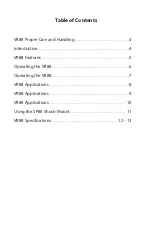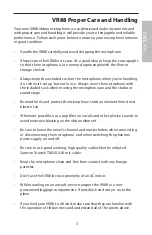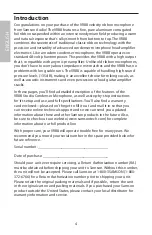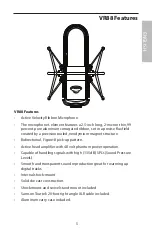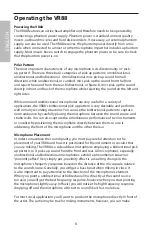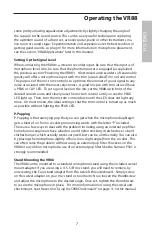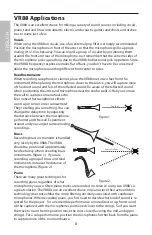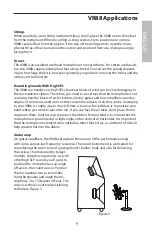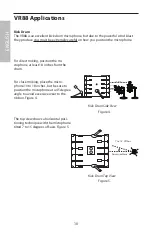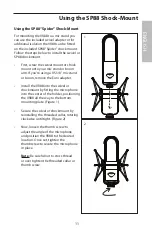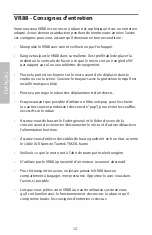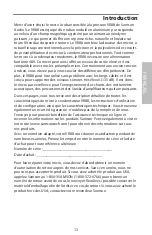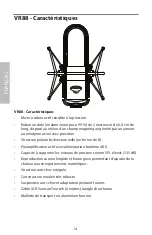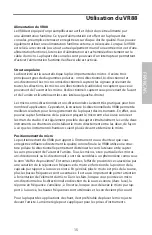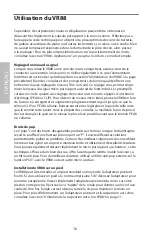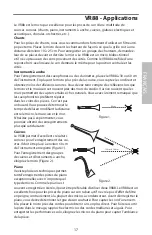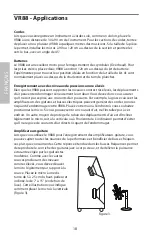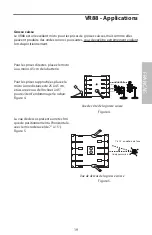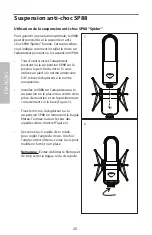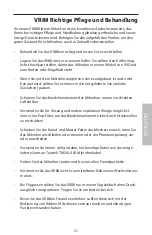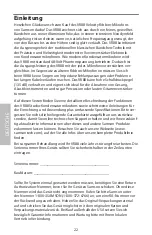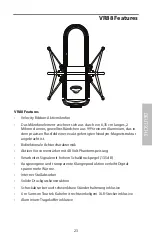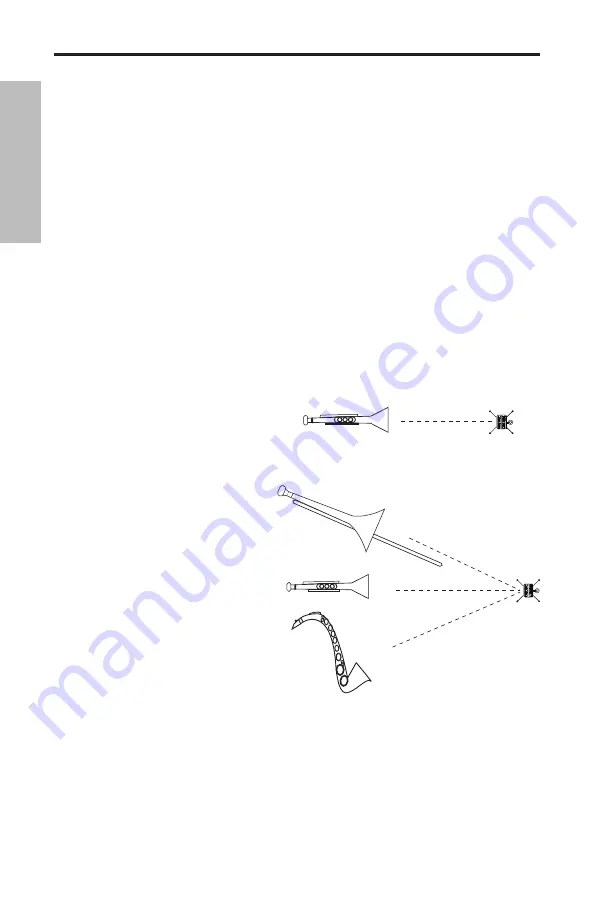
8
ENGLISH
The VR88 is an excellent choice for miking a variety of sound sources including vocals,
piano, reed and brass instruments, electric and acoustic guitars and choirs and orches-
tras to name just a few.
Vocals
When using the VR88 on vocals, use of an external pop filter is strongly recommended.
Position the microphone in front of the artist so that the microphone grill is approxi-
mating 4 to 10 inches away. You can record a group of vocalist by positioning them
around the front and rear of the microphone. Just remember that the extreme sides of
the microphone picks up nothing due to the VR88’s bidirectional pick up pattern. Since
the VR88’s frequency response remains flat off axis, you don’t have to be concerned
about the microphone sounding different from center to sides.
Reed Instruments
When recording saxophone or clarinet, place the VR88 one to two feet from the
instrument. When placing the microphone closer to the source, you will capture more
of the direct sound and less of the reflected sound. Be aware of the reflected sound
when positioning the artist and microphone near the studio walls. Often you can use
the wall to capture some natural echo.
Ever notice that saxophonists like to
warm up in some corner somewhere?
They’re telling you something. You can
change the delay time by adjusting
the distance between the microphone,
performer and the wall. Experiment
around and you can get some amazing
recordings.
Brass
Recording brass instruments is handled
very nicely by the VR88. The VR88
should be positioned approximately
two feet away when recording brass
instruments. (figure 1.) If you are
recording a group of brass and reed
instruments increase the distance of
the microphone. (figure 2.)
Piano
There are many great techniques for
recording piano, regardless of what
microphone you use. Often piano tracks are recorded in stereo so using two VR88’s is
a great solution. The VR88’s are an excellent choice on piano since their active ribbon
technology does not exhibit the comb filtering normally associated with condenser
microphones. When recording piano, you first need to decide what kind of sound is re-
quired for the project. For an ensemble performance a more direct or up front sound
will be captured with the microphones positioned closer to the strings. So if you want
the track to lie in the mix position move the mics closer (favoring the mid and upper
strings). For a solo performance, position the microphones further back from the piano
to capture more of the room ambiance.
Two Feet
Four to Six Feet
VR88 Applications
Figure 1.
Figure 2.
Summary of Contents for VR88
Page 1: ...Active Velocity Ribbon Microphone P R O F E S S I O N A L M I C R O P H O N E S...
Page 2: ......
Page 54: ...52...
Page 55: ...53...




